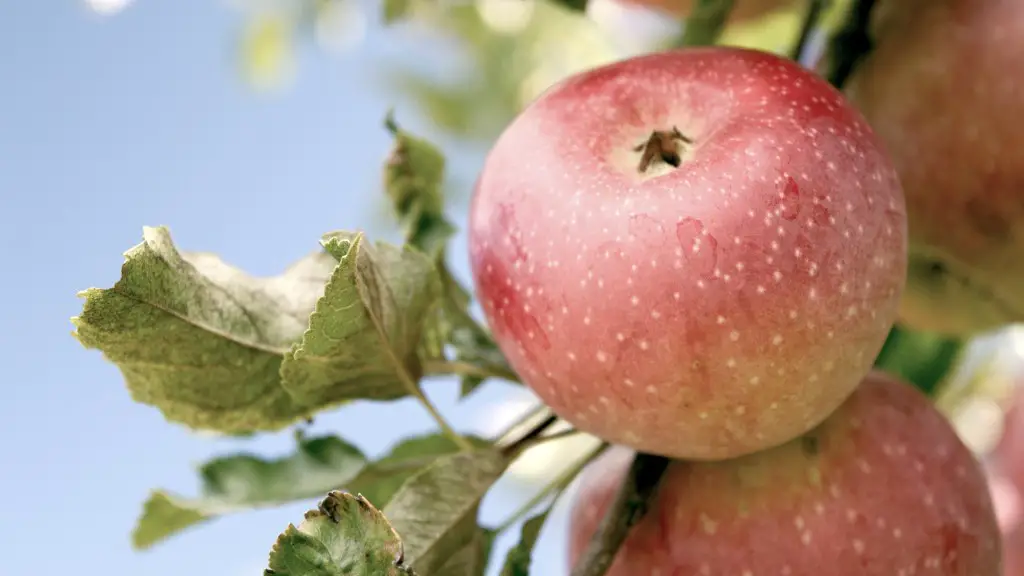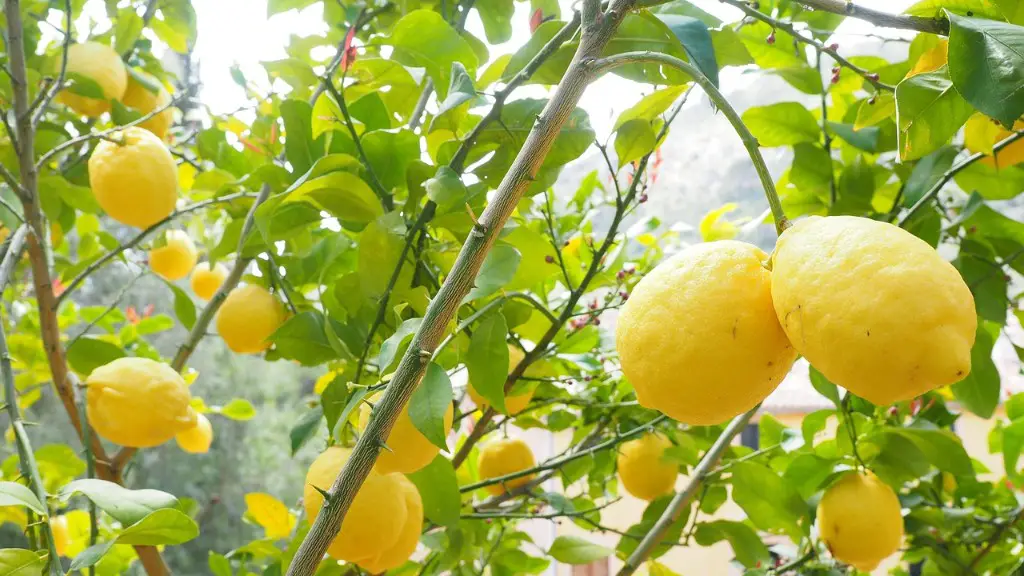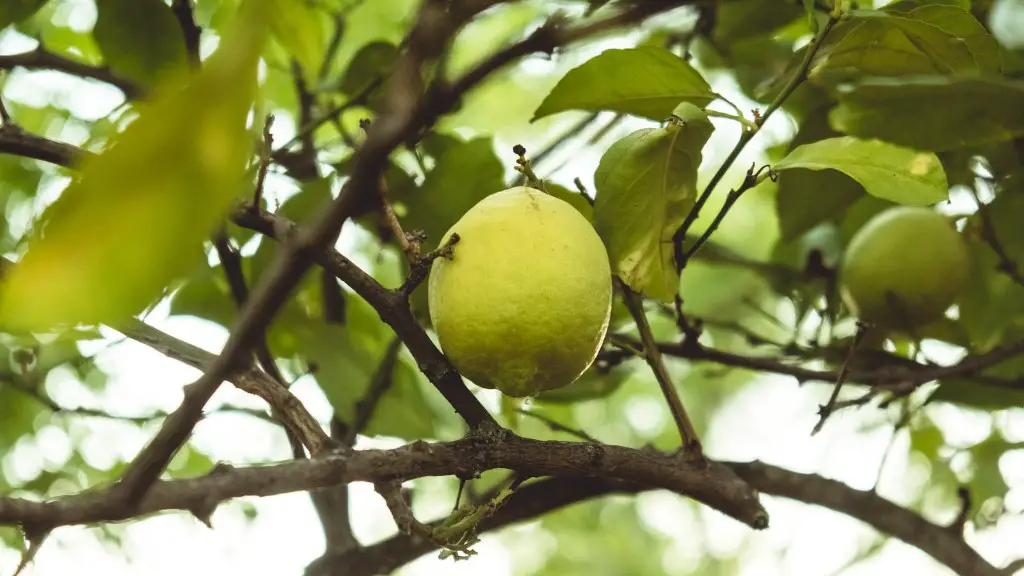A lemon tree is a popular citrus fruit tree that can be grown indoors with some proper care. The tree originates from India and is now grown in many countries around the world. The tree grows to about 20 feet tall and has white flowers with a strong lemon scent. The fruit is oval shaped and has a yellow peel with a sour, acidic pulp. Lemon trees do best in full sun but can also tolerate some partial shade. They require well-drained, sandy soil and should be watered regularly. fertilizer should be applied every few months. Pruning is also important to encourage new growth and to keep the tree tidy.
To care for a lemon tree indoors, you will need to provide it with bright, indirect sunlight and water it when the soil is dry to the touch. It is also important to fertilize your lemon tree every few months.
How often do you water an indoor lemon tree?
During active growth, especially if they’re outdoors during summer, container lemon trees may need daily watering. During winter, water only as needed to keep soil moist. Timing varies depending on your indoor temperatures, your container and your tree size.
Place your indoor lemon tree in a very sunny spot with an average nightly temperature of about 65 degrees F (or 18 degrees C). Keep it away from air conditioning or heating ducts as extreme temperatures can stress your tree. An important part of indoor lemon tree care is root pruning.
How do you take care of a potted lemon tree
Water is essential for plant growth, but too much water can be just as harmful as too little. The key is to mimic nature by watering deeply and allowing the soil to drain well between watering.
Meyer lemon trees are a great choice for those looking to grow citrus plants indoors. They are easy to care for and can provide fruit up to four times per year. Meyer lemon plants require no chill hours to fruit, so they can be grown indoors all year-round.
Should you mist an indoor lemon tree?
If you have an indoor lemon tree, it’s important to mist it daily, especially during cooler months when you’re running your heat. You can also use a humidifier or fill your pot’s saucer with rocks and add water; place your plant on the rocks, ensuring the bottom of the pot is above the water line, for best results.
It is important to not overwater citrus plants as this can be just as harmful as not watering them enough. Too much water can lead to root rot and other problems. Tap water is fine to use, but avoid using softened water as it can contain sodium salts.
Can you put Miracle Grow on a lemon tree?
This is an all-purpose pesticide that can be used on fruit, citrus, and palm trees. It is safe to use around children and pets, and is effective at controlling a wide variety of pests.
Per the Miracle-Gro Water Soluble All Purpose Plant Food label, it can be used on all trees and shrubs. This makes it a versatile product for those who have a variety of plants to care for. It is simple to use, just mix with water and apply to the leaves or roots of your plants.
How long do potted lemon trees last
Lemon trees are long-lived, hardy trees that can provide many years of enjoyment. With proper care and disease prevention practices, a lemon tree can live for over 100 years. However, diseases can shorten the life of a lemon tree, so it is important to take good care of your tree to help it stay healthy and strong.
While lemon trees are beautiful and produce lovely fruits, they can be susceptible to a number of problems. Lesions on the leaves, black moldy spots, fuzzy gray mold, and brown scabs are all common issues that can arise. Luckily, there are steps you can take to combat these problems and keep your lemon tree healthy and thriving.
Can I put coffee grounds in my potted lemon tree?
Adding coffee grounds to the soil of a potted lemon tree can be beneficial in several ways. The grounds can help to improve the acidity of the soil, which is important for lemon trees. The grounds can also provide additional nutrients to the soil, such as nitrogen and magnesium.
A lemon tree will ideally be placed in a south-facing window where it will receive plenty of light. Without enough light, the tree will not produce flowers, and therefore will not produce fruit. If you are worried about your light situation, you can try supplementing with a grow light.
What month do lemon trees bloom
Meyer Lemon Trees can bloom all year, but they have two main blooming times: fall and early spring. If they bloom while it’s too cold for them to be outside, simply keep your tree indoors.
Most citrus varieties are self-fertile, so only one tree is typically needed for fruit production. On average, fruit bearing begins when the trees are between 3 and 6 years old. However, exact timing will depend on the type of citrus, the cultivar, your climate, the health of the plant and its care, and other factors.
Do indoor lemon trees attract bugs?
Citrus plants are known to attract bugs, which can be more of an issue when the plants are kept indoors. To help combat this, make sure to keep your citrus plants well-watered and to regularly inspect them for any signs of pests.
A tree with yellow or cupped leaves, or leaves that don’t look perky AFTER watering can indicate excessive watering and soggy roots. Give your tree water less often. Citrus prefer infrequent, deep watering to frequent, shallow sprinklings.
When should you not water a lemon tree
A newly potted lemon tree needs to be watered well every alternate day – deep watering is essential so that the root ball gets the necessary hydration. Once the plant is somewhat established, watering can be tapered to twice a week and then once a week or so.
Citrus trees do not need to go dormant like many other plants and they should have sufficient light and humidity during the winter. However, their growth will slow during this time.
Final Words
In general, lemon trees do best in full sun and moist, well-drained soil. If you are growing your lemon tree indoors, place it near a south- or west-facing window where it will receive at least six hours of direct sunlight each day. Be sure to monitor the soil moisture level and water when the top inch of soil feels dry. Allow the water to drain fully before returning the tree to its spot. Fertilize your tree every two to four weeks from spring through fall with a half-strength, all-purpose fertilizer.
Lemon trees are a beautiful addition to any home and with proper care, can provide years of enjoyment. Indoor lemon trees need regular watering, plenty of sunlight, and occasional fertilizer to stay healthy and produce fruit. With a little love and attention, your indoor lemon tree will thrive and provide you with delicious lemons for years to come!




